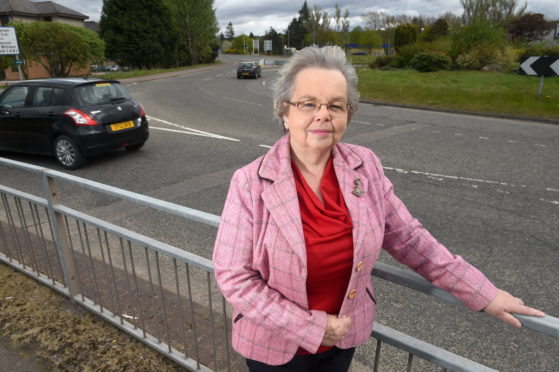Highland Council is considering introducing a carbon budget across its services to push towards its ambition for the Highlands to become carbon-neutral by 2025.
The council declared a climate and ecological emergency in May 2019, and its carbon-neutral target is the most ambitious of any local authority area in Scotland.
Council officers, led by performance and governance boss Kate Lackie have been working on more than two dozen projects , labelled high priority, across the council’s services.
These include supporting a post-Covid ‘green’ economic recovery, investment in the elective vehicle infrastructure programme, promoting low carbon behaviours to staff in a ‘green impact’ pilot; low emission solutions for the council’s vehicle fleets; an allotments and food growing strategy, use of a £3.5m recycling fund to support projects like the River Ness Hydro, fossil fuel boiler replacements and LED lighting upgrades and a £2.5m programme to install solar arrays at various council sites and using the Spaces for People programme to increase active travel and reduce road emissions.
In her report, Mrs Lackie said the resource implications are potentially significant.
“The challenge for Highland Council is to embed low carbon activity within everything that it does, in relation to normal service delivery and in terms of capital funding.
“This needs strong leadership, joined up thinking and a recognition that whilst some costs may increase in the short term, the life cycle cost and carbon savings will be significant.
“This is a key focus of service redesign work currently underway.”
Although the council has set a target for a carbon neutral Highland by 2025, it has not set a corporate target to achieve net zero emissions from its own operations, something Mrs Lackie said would hinder future funding bids.
Chairwoman of the council’s Climate Change committee, councillor Trish Robertson said she was frustrated by the lack of action within the council.
“We are asking for a carbon budget, they are trying to avoid it for fear of it costing money.
“People still think there is plenty of time to sort out the climate, but there isn’t.
“We need to get infrastructure for things like hydrogen power in now so we are ready for it.”
Aberdeenshire Council was the first local authority in Scotland to implement a carbon budget three years ago.
The shire council’s target is to reduce its emissions by 75% by 2030 and net zero by 2045, using 2010/11 as the baseline year.
Since baseline, the council’s greenhouse gas emissions have dropped by more than 3,000 tonnes, with the biggest drop, 1,000 tonnes, seen in the first year of its carbon budget implementation.
